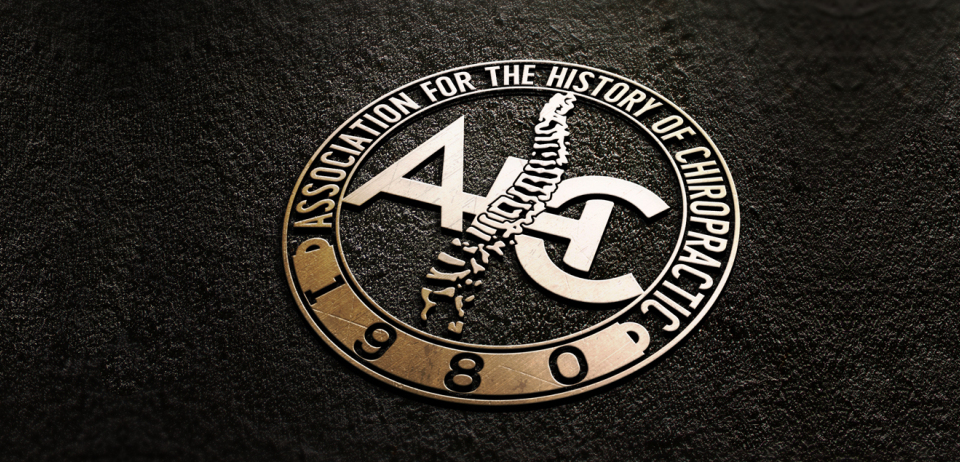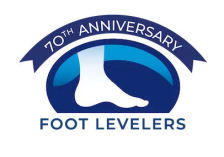Peer Review Process
Chiropractic History
The Archives and Journal of the Association for the History of Chiropractic
Contact Information
Editor of the publication:
John B. Wolfe, Jr, DC, JD jwolfe@nwhealth.edu
Executive Director of the publisher:
Roger J.R. Hynes, DC ahc1895@gmail.com
Postal address:
Association for the History of Chiropractic
4802 Fairhaven Court
Davenport, IA 52807
Website: historyofchiropractic.org
Journal Scope
Chiropractic History (ISSN: 0736-4377) is an international, peer-reviewed journal dedicated to publishing research and scholarly articles pertaining to the history of chiropractic and the
chiropractic profession. Journal contents are of interest to chiropractic practitioners, practitioners of manual therapies, historians, educators, administrators, and students. The journal follows
industry standard best practices in publication ethics and policy, as described below. Submissions must be original work and not currently under consideration for publication in another peer-reviewed
medium, including paper and electronic formats. The journal does not publish articles containing material that has been reported elsewhere.
Indexing
Chiropractic History is indexed in Current Work in the History of Medicine, the Index to Chiropractic Literature, the Cumulative Index to Nursing and Allied Health Literature (CINAHL), Manual
Alternative and Natural Therapies Indexing System (MANTIS), and (from 1981-1999) in PubMed.
Editorial Policy and Publication Ethics
Chiropractic History adheres to high ethical standards for publication. The journal follows the standards of the Committee on Publication Ethics (COPE). Publication malpractice is managed using a
fair and timely process as recommended by COPE, depending on the potential infraction.
Human Subjects
Chiropractic History does not publish research involving human subjects. Occasionally, an article may reference a published study involving human subjects. Similarly, occasional reference may be made
to historical human or animal research conducted or published prior to the widespread use of institutional review boards.
Conflict of Interest
Conflict of interest exists when an author has financial or personal interests that may influence his or her actions regarding the author’s work, manuscript, or decisions. Conflicts of interest that
exist, or that are perceived to exist, for individual authors in connection with the content of this paper should be disclosed on the Conflict of Interest Disclosure form and in the appropriate
section of the manuscript as described below. The editor makes the final determination concerning the extent of information released to the public.
Funding Sources
Financial support for the project, such as grants and funding sources, should be clearly stated in the appropriate section of the manuscript as described below. The role of funding organizations, if
any, in the conduct of the work should be described in a separate section after the conclusion(s) section of the manuscript.
Copyright of Journal Contents
Material published in Chiropractic History is covered by copyright. No content published by the journal (either in print or electronic) may be stored or presented on another private site,
organization’s site, or displayed or reproduced by any other means, without the express permission of the copyright holder. This applies to the reprinting of the original article in another
publication and the use of any illustrations or text to create a new work.
Permissions
It is the corresponding author’s responsibility to secure all copyright permissions and permission to state names or institutions in the acknowledgments and provide these to the journal’s editorial
office. Illustrations or content from other publications (print or electronic) must be submitted with written permission from the publisher (and author if required) and must be acknowledged in the
manuscript. All permissions should be emailed to the journal editor.
Redundant or Duplicate Publication
Chiropractic History does not publish articles containing material that has been reported at length elsewhere. A manuscript should not be simultaneously submitted for publication elsewhere in any
form. The manuscript nor its component parts should be subject to copyright or any other rights. The corresponding author must include in the cover letter a statement to the editor about all
submissions and previous materials that may be redundant or duplicate publication of similar work.
If a redundant or duplicate publication is attempted or occurs without proper disclosure to the editor, editorial action will be taken. The journal follows processes recommended by the Committee on
Publication Ethics (COPE), available at www.publicationethics.org. If it is confirmed that a paper contains a significant amount of duplicate or redundant material and this is discovered in the
prepublication phase, the paper will be rejected, even if an accept notice has been distributed previously to the authors. If duplicate or redundant publication is confirmed after publication, the
paper will be retracted, and the appropriate boards/institutions notified.
Non-compliance with Author Instructions
Authors who do not comply with the items set forth in these instructions may have the submission returned, rejected, or brought to higher authorities, such as ethics, licensing, or institutional
boards for review at the editor’s discretion.
Peer Review
The manuscript will initially be assessed by the editor for relevance to the journal and overall manuscript quality. Manuscripts that are not deemed a good fit for the journal will be returned to the
author(s). Manuscripts in need of further work to enhance the quality of the submission may also be returned to the author(s) with formative feedback. Manuscripts that are within the scope of the
journal and of sufficient quality will then be peer-reviewed.
All manuscripts are subject to blind (without author or institutional identification) critical review by two or more peer-reviewers. Typically, content experts will be assigned to review each
manuscript.
Specific topics addressed by reviewers include:
a. The historical importance of the topic(s) addressed in the manuscript.
b. The originality of the manuscript.
c. The organization of the manuscript.
d. The clarity of the manuscript.
e. The accuracy of the manuscript.
f. The interpretation of the manuscript (does the author(s) appropriately interpret the facts presented in the article in light of the known facts, if any, in this area of historical research).
g. The accuracy, quality and format of the references cited in the manuscript
The purpose of peer-review is to assist the author in improving the quality of a manuscript, assuring that references support the proposition for which they are cited, and to assist the editor in
judging whether to accept a manuscript for publication, ask for revision, or reject the manuscript. Reviewers’ comments will be returned to authors. All reviewers remain anonymous.
Following peer-review, authors will be notified of acceptance of the manuscript, asked to revise the manuscript, or informed that the manuscript is not suitable for publication in the journal.
Manuscripts that are considered unsuitable are no longer considered to have the copyright assigned to the journal and it is the author’s prerogative to seek publication elsewhere.
All manuscripts accepted for publication are subject to copy-editing and revision as may be necessary to ensure clarity, conciseness, correct usage, and conformance to approved style. All papers that
are accepted require some editorial revision before publication. Authors will have the opportunity to approve revisions made during the copy-editing process during the reviewing of the proofs.
Editors will work with authors to arrive at agreement when authors do not find the revisions acceptable, but the journal reserves the right to refrain from publishing a manuscript if discussion with
the author fails to reach a solution that satisfies the editors.
Disclaimer
Chiropractic History is the official archives and journal of the Association for the History of Chiropractic. The statements and views presented in the papers published in the journal represent the
opinions of the author(s). Materials published do not necessarily reflect the attitude or official position of its editors, editorial board, or of the officers and directors of the Association for
the History of Chiropractic.





